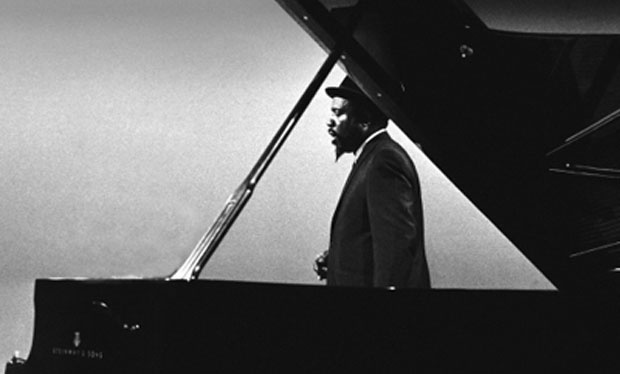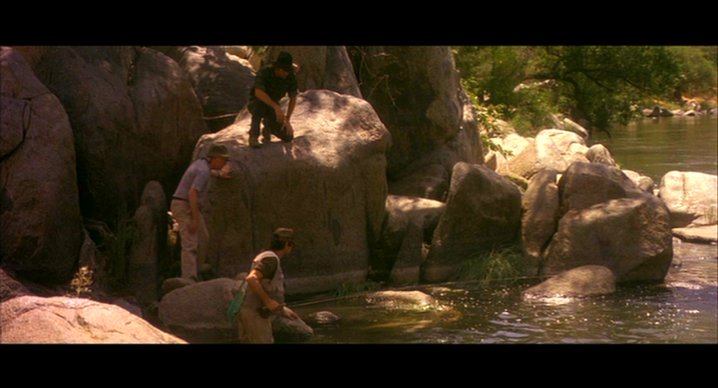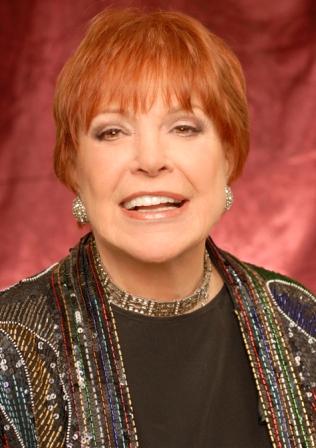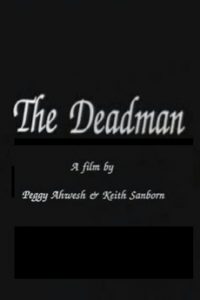From the Chicago Reader (October 26, 1995). This date is a guess and an estimate; the Reader gives the date of this capsule as a decade earlier, a couple of years before I started writing for the paper. — J.R.

The core of Charlotte Zwerin’s exciting if vexing 1989 documentary about the great jazz pianist and composer — brought to us courtesy of Clint Eastwood, executive producer — is drawn from 14 hours of footage of Monk, in performance and offstage, shot by Michael and Christian Blackwood over six months in 1968. The musical value of this footage is so powerful that nothing can deface it, despite the best efforts of Zwerin to do so: all the worst habits of jazz documentaries in treating the music, from cutting off numbers midstream to burying them with voice-overs (which also happens on the sound track album), are routinely employed; adding insult to injury are the merely adequate performances (by contemporary piano duo Tommy Flanagan and Barry Harris) of two unabridged Monk tunes. The offstage footage of Monk and the accounts by friends and family of the mental illness that plagued his final years aren’t very illuminating — though here the film at least has the virtue of not presuming to tread beyond the limits of its understanding — and there’s virtually no analysis of the importance of Monk’s music on a technical level. Read more
From the Chicago Reader (October 22, 1993). — J.R.

SHORT CUTS
*** (A must-see)
Directed by Robert Altman
Written by Altman and Frank Barhydt
With Anne Archer, Bruce Davison, Robert Downey Jr., Peter Gallagher, Jennifer Jason Leigh, Jack Lemmon, Lyle Lovett, Andie MacDowell, Frances McDormand, Matthew Modine, Julianne Moore, Chris Penn, Tim Robbins, Annie Ross, Lori Singer, Madeleine Stowe, Lili Taylor, Lily Tomlin, Fred Ward, and Tom Waits.

Annie Ross — the tough and resourceful British-born jazz singer Kenneth Tynan once called “a carrot-head who moves us and then brushes off our sympathy with a shrug of her lips” — projects the kind of caustic soul that seems made for a Robert Altman film. And nothing in Altman’s 189-minute Short Cuts moves me quite as much as her rendition of “I’m Gonna Go Fishin’,” sung and swung over the final credits, which roll past a set of overlapping maps of Los Angeles.
The number meshes with the movie in unexpected and mysterious ways. Its trout-fishing motif sends us back to one of the film’s key episodes and its aftermath — a trout dinner for two couples on a terrace overlooking LA that expands into an all-night party, a recapitulation of many of this movie’s other motifs and themes: Jeopardy, clown costumes, makeup, marital infidelity, partying, unemployment. Read more
From the Chicago Reader (April 1, 1991). Happily, this film can be accessed for free at http://ubu.com/film/ahwesh_deadman.html –– J.R.


Running 37 minutes, Peggy Ahwesh and Keith Sanborn’s free and liberating (as well as liberated) 1989 adaptation of Georges Bataille’s untranslated story Le morte is one the most exciting and accomplished experimental film I saw during the 1990s. It charts the adventures of a nearly naked heroine who leaves the corpse of her lover in a country house, goes to a bar, and sets in motion a scabrous free-form orgy before returning to the house to die. The film manages to approximate the transgressive poetic prose of Bataille while celebrating female sexual desire without the usual patriarchal-porn trimmings. Equally remarkable for its endlessly inventive sound track and its beautiful black-and-white photography, it bears the earmarks of an authentic classic. The relationship between the visual storytelling, the ornate printed titles, and the occasional voice-over is both subtle and complex, mixing tenses and cross weaving modes of narration with a unique fusing of abandon and rigor. (JR)
 Read more
Read more






